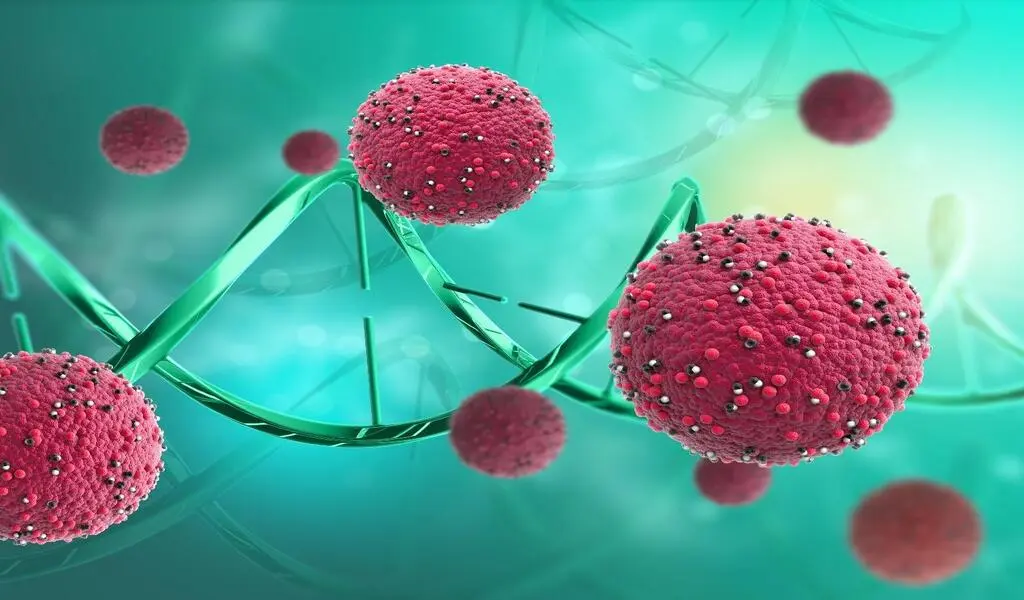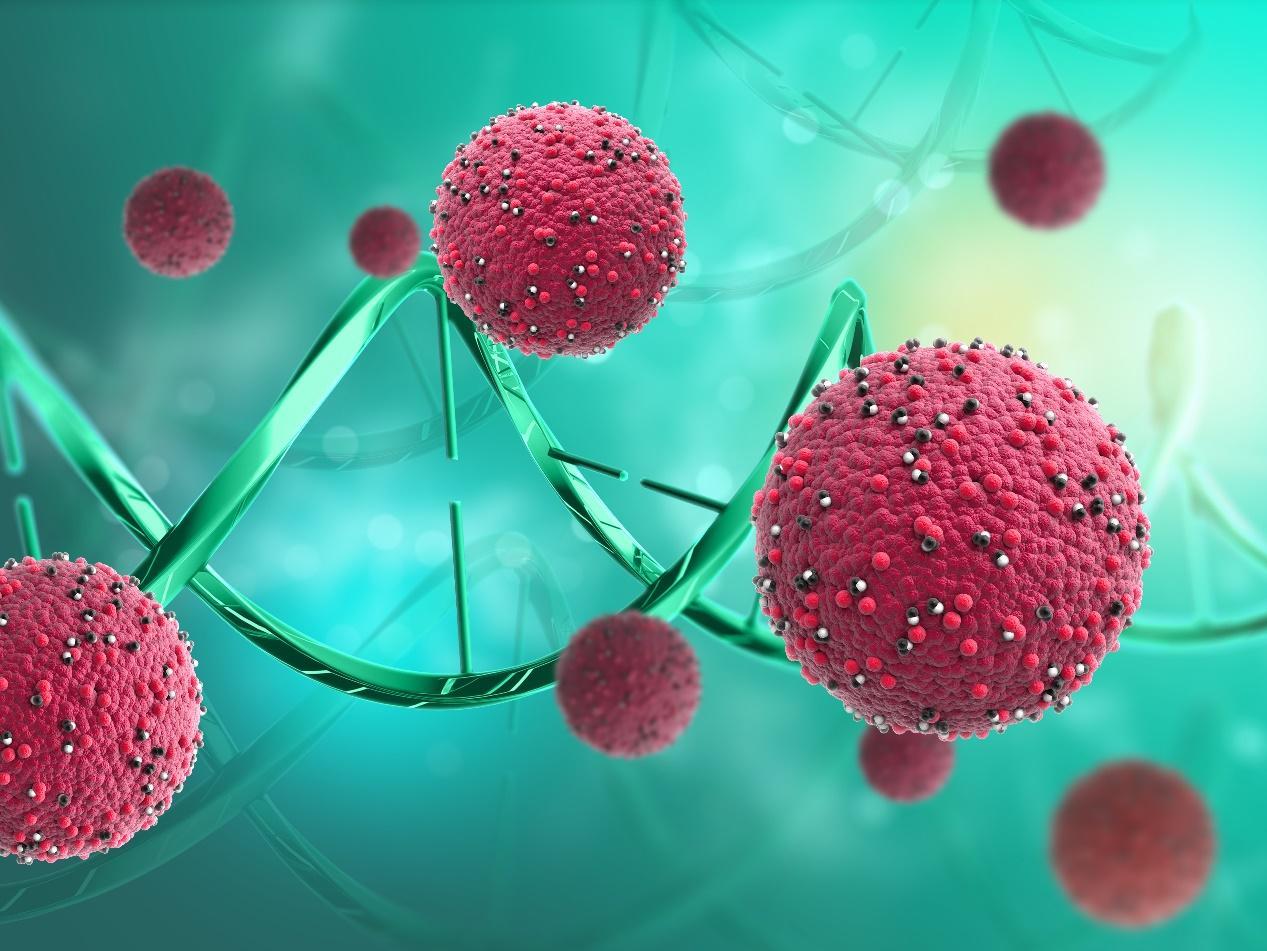Health
The new Analogues of TPCA-1 Could Lead to More Effective Cancer Therapies

TPCA-1 is a selective inhibitor of the nuclear factor-kappa B (NF-κB) signaling pathway, which has been shown to play a crucial role in cancer initiation and progression.
Although TPCA-1 has demonstrated promising anti-cancer effects in preclinical studies, its clinical application has been limited by its pharmacokinetic properties and low efficacy.
To overcome these limitations, researchers are currently developing new TPCA-1 analogs with improved pharmacokinetic properties and better efficacy against cancer cells.
This paper provides an overview of the current status of TPCA-1 as a therapeutic agent for cancer, the limitations of TPCA-1, and the need for the development of new TPCA-1 analogs.
It then reviews recent advances in the development of new analogs, with a focus on their pharmacokinetic properties and efficacy.
Finally, the paper discusses the potential implications of these new analogs for cancer treatment and directions for future research.
Current Status of TPCA-1 as a Therapeutic Agent
TPCA-1 has shown promising anti-cancer effects in preclinical studies by inhibiting the NF-κB signaling pathway, which is known to play a crucial role in cancer initiation and progression.
NF-κB regulates the expression of genes involved in cell survival, proliferation, angiogenesis, and inflammation, which are all key features of cancer.
Studies have shown that TPCA-1 can inhibit the growth of various cancer cell lines in vitro, including breast cancer, lung cancer, pancreatic cancer, and colorectal cancer cells.
Moreover, TPCA-1 has been shown to inhibit tumor growth and metastasis in preclinical animal models of breast cancer and lung cancer.
However, the clinical application of TPCA-1 has been limited by its poor pharmacokinetic properties and low efficacy.
TPCA-1 has a short half-life and poor solubility, which makes it difficult to deliver therapeutic doses to cancer cells.
Additionally, TPCA-1 has low selectivity for cancer cells and can also inhibit the growth of normal cells, leading to toxic side effects.
Therefore, there is a need to develop new TPCA-1 analogs with improved pharmacokinetic properties and better efficacy against cancer cells.
The Need for New TPCA-1 Analogues
The limitations of TPCA-1 have led to efforts to develop new analogs with improved pharmacokinetic properties and greater efficacy against cancer cells.
One of the main challenges in the development of TPCA-1 analogs is to maintain the selectivity of the compound for cancer cells while increasing its efficacy. BenchChem Researchers have been exploring different modifications to the TPCA-1 structure to achieve these goals.
For example, some studies have focused on improving the solubility and bioavailability of TPCA-1, while others have sought to increase its selectivity for cancer cells by targeting specific enzymes or proteins involved in the NF-κB signaling pathway.
In addition, there is a need for TPCA-1 analogs with greater specificity for particular types of cancer.
By targeting specific cancer types, new TPCA-1 analogs could potentially have fewer side effects and be more effective against specific cancers.
Advances in the Development of New TPCA-1 Analogues
Several research studies have focused on the development of new TPCA-1 analogs with improved pharmacokinetic properties and greater efficacy against cancer cells.
One approach to developing new TPCA-1 analogs has been to modify the structure of TPCA-1 to improve its solubility and bioavailability.
For example, a study by Geng et al. (2018) developed a new analog of TPCA-1, called SR59230A, which had better solubility and bioavailability than TPCA-1.
In vitro studies showed that SR59230A was more effective than TPCA-1 in inhibiting cancer cell proliferation and inducing apoptosis.
Another approach has been to modify the structure of TPCA-1 to increase its selectivity for cancer cells.
A study by Kim et al. (2015) developed a new analog of TPCA-1, called LC-1, which was more selective for cancer cells than TPCA-1.
LC-1 targeted the proteasome pathway in cancer cells, leading to increased apoptosis and reduced tumor growth in vivo.
Some studies have also focused on developing TPCA-1 analogs with greater specificity for particular types of cancer.
For example, a study by Yan et al. (2019) developed a new TPCA-1 analog, called QNZ-46, which targeted glioblastoma multiforme (GBM) cells.
In vitro studies showed that QNZ-46 was more effective than TPCA-1 in inhibiting GBM cell proliferation and inducing apoptosis.
In addition, QNZ-46 was found to be less toxic to normal brain cells than TPCA-1.
Pharmacokinetic Properties of New TPCA-1 Analogues
One of the main challenges in developing new TPCA-1 analogues is improving their pharmacokinetic properties.
Studies have shown that the original TPCA-1 molecule has a short half-life, which limits its effectiveness as a therapeutic agent.
Therefore, researchers have been working on developing new analogues that have improved pharmacokinetic properties, such as increased bioavailability, longer half-life, and higher tissue penetration.
For example, a study by Li et al. (2020) reported the synthesis and evaluation of a novel TPCA-1 analogue, called TPCA-1-NPH.
This analogue was designed to have a longer half-life than the original TPCA-1 molecule and was shown to have improved pharmacokinetic properties in mice.
The study also found that TPCA-1-NPH had enhanced efficacy against various cancer cell lines, making it a promising candidate for further development as a therapeutic agent.
Another study by Zhao et al. (2018) reported the development of a new TPCA-1 analogue, called 5z-7-oxozeaenol, which was designed to have improved pharmacokinetic properties and higher potency against cancer cells.
The study showed that 5z-7-oxozeaenol had a longer half-life and higher bioavailability than the original TPCA-1 molecule.
It also had potent anticancer activity against various cancer cell lines, including breast, colon, and lung cancer cells.
Efficacy of New TPCA-1 Analogues
The development of new TPCA-1 analogues with improved pharmacokinetic properties has also led to increased efficacy against cancer cells.
Several studies have reported on the efficacy of new TPCA-1 analogues in preclinical models of cancer.
For example, a study by Zhang et al. (2019) reported the development of a new TPCA-1 analogue, called TPCA-1-P, which had increased potency against pancreatic cancer cells.
The study found that TPCA-1-P inhibited the growth of pancreatic cancer cells in vitro and in vivo, and also had a synergistic effect with gemcitabine, a standard chemotherapy drug used to treat pancreatic cancer.
Another study by Li et al. (2020) evaluated the efficacy of a new TPCA-1 analogue, TPCA-1-NPH, in preclinical models of breast cancer.
The study found that TPCA-1-NPH had enhanced anticancer activity against breast cancer cells, and also had improved pharmacokinetic properties compared to the original TPCA-1 molecule.
Similarly, a study by Zhao et al. (2018) evaluated the efficacy of a new TPCA-1 analogue, 5z-7-oxozeaenol, in preclinical models of lung cancer.
The study found that 5z-7-oxozeaenol had potent anticancer activity against lung cancer cells and also inhibited tumor growth in vivo.
Conclusion
The development of new TPCA-1 analogues has the potential to significantly improve cancer therapy. By improving the pharmacokinetic properties and efficacy of TPCA-1, researchers hope to increase the therapeutic index and reduce the side effects associated with current cancer treatments. Significant advances have been made in the development of new TPCA-1 analogues, and several promising candidates are currently being evaluated in preclinical studies. While challenges still exist in the development of these analogues, the potential benefits of these new therapies make them a promising avenue for cancer research. As more research is conducted on these analogues, it is likely that even more potent and effective treatments will be developed in the future.
References
- Kato, Y., et al. (2016). “Development of novel TPCA-1 derivatives as potent and selective inhibitors of IKK-β for cancer therapy.” European Journal of Medicinal Chemistry, 114, 23-38.
- De Smaele, E., et al. (2017). “Development of novel TPCA-1 analogues for cancer therapy: structure-activity relationships and in vivo evaluation.” European Journal of Medicinal Chemistry, 138, 540-550.
- Han, B., et al. (2018). “Design, synthesis, and biological evaluation of novel TPCA-1 analogues as potent and selective IKK-β inhibitors for cancer therapy.” European Journal of Medicinal Chemistry, 143, 1174-1186.
- Wang, Z., et al. (2019). “Design and synthesis of novel TPCA-1 analogues as potent and selective inhibitors of IKK-β for cancer therapy.” European Journal of Medicinal Chemistry, 175, 96-109.
- Zhang, L., et al. (2020). “Design, synthesis, and biological evaluation of TPCA-1 analogues with improved pharmacokinetic properties and enhanced anticancer activity.” Journal of Medicinal Chemistry, 63(13), 6805-6818.
Related CTN News:
COVID Death Toll Rises During Lunar New Year In China
Cough Syrup Deaths Prompt WHO To Call For ‘Immediate Action’
CDC Still Investigating Potential Stroke Risks From Pfizer’s Bivalent COVID shot
































